Worst Utah





Winter Date Ideas

Why

Unfriended Cupid





Short-Term





Rental Disasters
















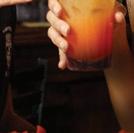





















Worst Utah





Winter Date Ideas

Why

Unfriended Cupid





Short-Term





Rental Disasters





































When Salt Lake City approved the current zoning ordinance for the Sugar House Business District, it gave property owners the right to construct mixed-use (residential with commercial) structures up to 100’ tall, with specific conditions and restrictions. In a short time, historic buildings such as the iconic Granite Drug Store were demolished, and the 6-story “Vue at Sugar House” rose over the notorious Sugar Hole that was left in the ground.
All around the Business District, other landowners exercised their right to lease or sell their lots for mixed-use re-development. On the Granite block alone, three more multi-story projects went up: “2100 Sugarhouse” (two stories); the “Sugarmont Apartments and Townhomes” (seven stories); and most recently, the eight story building at 2188 S Highland Drive known as “Sugar Alley.”
Sugar Alley was designed to meet design guidelines updated in 2021 for the east part of downtown Sugar House. Construction was well underway when Sugar Alley caught fire on October 25, 2022. There were no injuries, but the building was destroyed. After lengthy study, the Fire Department’s investigation determined that the cause of the fire was not criminal. There may be ongoing private insurance investigations underway to learn more about the cause of the fire.
Fire Department personnel ordered some residents of the nearby Sugarmont
Apartments to evacuate their homes.



Fire Chief Tony Allred credits the staff at Sugarmont and Sugar Vue for their quick and efficient assistance in helping to move the residents to safety, and most residents were able to return to their homes within 48 hours.
Businesses on the south side of the Vue along the Elm Lane frontage — SLC Med Spa, SportClips, Mochinut, and Real Advantage — were ordered to remain closed due to glass actively falling onto the sidewalk. A structural engineer for the City required the closure of Buffalo Wild Wings, Cubby’s, and Cold Stone City due to concern that the unstable remains of the burnt structure might collapse.
Demolition of the ruined building began two weeks after the fire. Business owners were allowed into their spaces at that time, and were able to notify their clients and customers that they were open and how to reach them.

SLC’s Department of Economic Development stepped up to notify businesses of the resources available to them. They tried to amplify the “Open for Business” message on social media, as did the Sugar House Chamber of Commerce.
Now, the Granite block residents and businesses face several more years of active construction as Sugar Alley rises again. They are anxious to learn what will happen next.
John Taylor is a photographer based in Salt Lake City. As a young boy, armed with his grandfather’s vintage camera, he started to see the world through the lens. Even today, he enjoys connecting with people on assignment or location, or just out for a walk with his wife, son, and rescued greyhound. He never leaves home without a camera and is always on a quest for the best shot. To see more of his work, visit his website at www. visionfoto.com.

Dave started writing in high school where he gained a love of language, communication and photography. As a published freelance writer and photographer for the past 35 years, his work has appeared in several local and regional publications on a variety of subjects.
As the owner of Wasatch Snake Removal, Dave writes extensively about snakes in an attempt to educate the public about the vital role snakes play in healthy ecosystems, and the important relationship between snakes and humans.

In 2014, he sent a manuscript to Utah Stories (The Joy of Snakes: The Truth About Snakes in Utah), which they published. Shortly thereafter, he joined the editorial staff and eventually became a copy editor and a regular contributing writer. He appreciates the diversity of the stories and the talented people who write them, and he credits Utah Stories with sharpening his skills as an editor.
Brooke Williams is a freelance journalist, focusing on hidden stories within everyday life. Her passion for storytelling came when she was in highschool and wanted to create humorous content for her school’s TV station. It felt like a natural skill, and though she went to college for mathematics and education, she graduated from the University of Utah in communications and Journalism.
Throughout college, she auditioned and was contracted to the Seattle Cascades and the Sacramento Mandarins world class drum and bugle corps, and discovered the importance of storytelling.
“I lived for drum corps, I worked so hard to be in the pro league and no one even knew what it was. I had to tell my story, and now I want to tell other people’s stories. We all live for something that no one knows about.”
She wrote for several years for the Daily Utah Chronicle, and currently writes for KSL-TV. She dedicates her freelance time to writing about music, culture, research, and hyper-local stories. On

















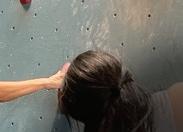



























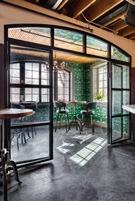

























































Comments from The Utah Stories Podcast:


Tuesday Allred [Mayor] Mendenhall has repeatedly stated she will not allow a campground in Salt Lake. I am very dismayed with the hatred for our unsheltered brothers and sisters—our fellow human beings.

I am one emergency away from becoming unsheltered. If I had to miss work for a month due to an accident or illness, I would become unsheltered. If you’re in a better position than I am, good for you. If not, maybe you should think twice before you judge so harshly.
Comments from The Utah Stories Podcast:
Robert Jorgensen
Hey Rich, good job. I lived out there from 2010 to 2018, so I feel ya. We need to go back to around 2010. That is when this started. I remember vividly watching the SLCPD stop enforcing the rules and they just stood down and let the place run wild.
I have a lot of love for the SLCPD. They’ve been good to the people on the street, and don’t let anybody say anything different, but what I am saying is that things changed, like the order that came down from high up to stand down.
Knowing this will help you better understand what we are up against.
I love what you’re doing. Hey, check this out: you need to track down Officer Shane. He was a cop working the Rio Grande beat back then. I am dying to hear his take on this. It would be really cool. And George with CCS, the big guy. And Brandon with the Road Home. He started working the counter at the old men’s shelter around 2010. I saw him working at Gail Miller about 2 years ago.


These people have been in the trenches for a long time, and there are others, but this is my short list for understanding the evolution of the situation.
Visit





















 By Richard Markosian
By Richard Markosian
The LDS Church was recently fined $5 million by the SEC for hiding billions of dollars. Perhaps giving unto Caesar what is Caesar’s doesn’t always apply in the world’s second wealthiest Church.

Utah political leader corruption among LDS members, including former Department of Agriculture Chief Kerry Gibson, is nothing new.
Gibson was let go for corruption and collusion after enriching himself with



taxpayer money with the roll out of the legal medical cannabis bonanza. Enormous amounts of money could be earned with the awarding of a coveted Utah medical cannabis grower license. But Gibson isn’t alone. Influence peddlers like David Robinson, who is suing every Utah media outlet for reporting on how he allegedly sexually harassed several women, went on for years.
The “good old boys network” is

Utah’s Tammany Hall, where LDS billionaires dream up hare-brained schemes like a gondola that would decimate the environment in one of Utah’s few remaining natural wonders — Little Cottonwood Canyon. These “dreamers” who have far more money than brains, advertise their gondola on the illegal billboard at the mouth of the canyon they wish to ruin for all but the elites they cater to.
Still, Utah is home to philanthropists who give enormous fortunes to help the needy: Gail Miller, the Eccles, and tech millionaires like Ryan Smith fuel our incredible economy and help make Utah a leader in cancer research and philanthropic gifts, and of course, there are the exceptional artists you will read about in the following pages. Still, a new prevailing sentiment is beginning to override our spirit of compassion, and that is greed.
Greed is causing billboard giant Regan Advertising to thwart national legislation that prohibits boards on scenic byways. Greed is causing a complete absence in building affordable housing, with our leaders paying lip service to helping the mentally ill who are roaming rampant on our streets. Greed is preventing SLC’s Mayor from ending emergency measures put in place six years ago that allows the raiding and harassing of homeless camps to continue, in effect indirectly causing the deaths of homeless, unsheltered Utahns.
Meanwhile, the rich in Utah get richer and the poor get poorer, and the gap between the two grows ever wider. Our Utah Stories podcast addresses these issues, including how iGens and Gen Zs face an unaffordable housing future.
The questions boil down to both our values and our priorities. Can we be NIMBYs, rejecting all projects that might allow more families more opportunities to find affordable housing while compassionately allowing our 20- and 30-year-old children to live in our basements a few more years?
Can we continue giving to the poor with one hand while pushing them down with the other?
Can we be a state with the nation-leading per capita economic input and charitable giving while we begin to look just like Los Angeles in terms of our homeless population, cultural decay and drug addiction?
We can’t solely blame the LDS Church network for the corruption and backroom dealing. Utah has always been somewhat of a red-headed stepchild among other western states. Utah’s growth has always been stunted due to our reputation as being a place where it is impossible to get a drink. Charles Barkley reminded us how outsiders view our city as a “boring ass city”. Many of us took pride that outsiders would skip over Utah for vacations or considerations for places to inhabit.
Today, SLC is a city of “diversity, inclusion” and a quickly-growing LGBTQ community. The urban core of SLC that never really existed is morphing into an entirely new creature.
The Church seems reluctant to determine what to do with this creature: Feed it? Shun it? Stop it? Baptize it? The church is like Daenerys Targaryen meeting her dragon children, knowing well it can be a force for both good and evil. It seems the Church will try to ride this dragon and hope it doesn’t get burned in the process.
In 1982, Linda Southam, a single mother with a 12-year-old daughter, took a risk with her crazy dream and opened an art gallery.

She claims that a big part of her success was the luck of finding a place with affordable rent. But none of the odds against her could match her passion, let alone her work ethic. Being a single mother, she learned to make things
happen all on her own. The gallery was no different. Knowing her story, it is clear that what she saw as “luck” was truly fate — it was meant to be.
Growing up, she watched her father run an old western store selling handcrafted saddles, some of which are displayed in a western museum.
“He had to carve into the leather, so he had to have an artistic mind,” she
said. “[If] you carve into an expensive piece of leather, you had better be accurate.”
That inspired her to take art classes in college; drawing, etching, ceramics, all of them. At 19-years-old, she began to paint.
She worked for the government, got married, and made one of her many works of art; little Kimberly Southam. Soon she was a single mother with Kimberly, 5, and her focus turned to art. She took private classes and immersed herself in a community of local artists and got a job at a gallery.
“I started working part time and I found out that I really loved selling the paintings, and I was good at it,” Southam said. “You’ve got to love it, you’ve got to extend that to your customer and you’ve got to get them excited.”
That experience would be vital a few years later when the gallery was in debt. She knew she had to move on to make it work, but she didn’t want to go back to working for the government.
“You fall in love with it. The more you’re around it, the more you want to do it,” she said. Thus, Southam Gallery of Fine Arts was born.
She found the perfect place: natural light beamed through large windows, it was just the right size, and it was affordable. “Being lucky with that was a big part of my success,” she said.
It’s been endless hard work since then. Linda, and then 12-year-old Kimberly, put the gallery together on their own; they even took care of maintenance as part of a deal with the landlord.
“We had to do it all, we did not have money to go buy the help,” she said. “You can’t fall apart because something
happens. You get used to it and take it in stride.”
At the grand opening in December 1982, Linda was still getting ready when Kimberly stepped in to help. She was young and shy, but nonetheless took the initiative to go out and greet the people, just like her mom would.
Linda was influenced by psychologist Dr. Joyce Brothers, who is known for spearheading conversations about mental health, feminism and failure since the 1960s.
She said she learned that those who will be successful in a small business can think both positively and negatively, because, “If you can foresee some of the things that are going to go wrong, then you’re prepared for the things that turn out bad and you can weather the storm.”
Dr. Brothers said “all of us can — and surely will at times — fail. Other vulnerabilities, like being embarrassed or risking love, can be terrifying, too. I think we should follow a simple rule: if we can take the worst, take the risk.”
Southam Gallery is one of the longest running galleries in Salt Lake City.
“It’s in your blood,” Linda said. “We didn’t necessarily intend to do it for 40 years.”
She sold top reputable artists’ work, and she had an eye for good art, inspired by other artists at exhibits where she would collect artwork for the gallery.
“It’s exciting because you see, oh, this is gonna be a successful show … because these were darn good. It’s a thrilling thing if you love art,” she said.
Eventually, she added her own art in the gallery. One day, a woman walked in with two others but parted ways,
walking straight to the back of the room where one of Linda’s pieces was on display.
“I thought she was going to say something about the piece hanging below mine. She said, ‘I want that one there.’ She was from Paris, and that was one of my gallery paintings,” Linda said.
That was the first piece of her own work that Linda sold. “It’s just fun to think that it’s in Paris, with all the history of Paris,” she said.
Her art was chosen over many other pieces by well-known artists like Richard Boyer, who has painted since age seven.
“People can say that everybody’s equal, but not in the arts,” she said. “The bar is really set high. I’m happy to go up against people that are painting every day.”
The women established rapport with every customer over the years, finding the right piece for each by understanding their taste, and explaining why an artist does something a certain way. Customers returned and created a following, some regulars bought tens, even hundreds of paintings. The duo’s differing ideas created the harmonious aesthetic that makes the entire gallery a work of art in itself.
“She (Kimberly) looks at it differently,” Linda said. “She’s got the historical knowledge, all the great painters through the ages, and I’ve got my knowledge of what’s more modern”
Now, Kimberly has a degree in art history and has taken over the gallery while Linda paints.
“It’s even hard for me to give it up, I still want to go out and talk to a customer,” she said. “I would walk in my gallery when I first started it … I just love the
feeling of ‘I’m in control of this,’ I like that this is my baby.”
Her latest piece is a massive display of how she is empowered by independence and driven by success. Recently, they relocated to Cottonwood Heights and were presented with new challenges: finding a new customer base and bringing back those that visited the gallery downtown, in an area where traffic moves by quickly.
“One day I’m just kind of getting irritated with the whole thing,” she said. “I thought, what do I need to put in the window to make traffic stop?”
Naturally, she decided to do “Starry Night” by Vincent Van Gogh, large enough to fill the space of the windows. The canvas is 80” wide. They’re throwing a party on his birthday, March 30th, serving french hors d’oeuvres and celebrating art.
“I enjoy getting dressed up a little and going down to the gallery. The idea of retiring doesn’t do anything for me. If I’m not going to be at the gallery, I would be working on the gallery at home,” she said.
While Linda’s Starry Night is not the same, it emulates the aura of Van Gogh’s. She loves that about art — that there are infinitely many creative ways to communicate one feeling, one idea.
“As I painted it,” she said, “I feel like I know him better now.”
Dr. Joyce Brothers wrote: “The marvelous thing about human beings is that we are perpetually reaching for the stars. The more we have, the more we want. And for this reason, we never have it all.”
Linda’s crazy dreams come true because she creates her own reality.



















Lena Toritch had a dream to become a sculptor. As a young girl, she watched her father work on his own projects, but due to the intense rules of the Communist Party, he lacked total creative freedom. For this reason, he encouraged his young daughter to study the great masters from the past, such as Auguste Rodin, to help her see the world through the eyes of an artist. Perhaps, most importantly, he fearlessly encouraged her to dare to believe that her incredible dream could come true.
Toritch was born and raised in St. Petersburg, Russia where she graduated from the prestigious St. Petersburg Academy of Fine Arts. During her graduate years, she mastered human and animal anatomy, composition, drawing, and eventually sculpture. But even with such a diverse set of skills, she sees herself, first and foremost, as a portrait artist.
She explained to me that when she is working on a memorial, she likes to connect to the person and the essence of their character. When asked about her work on K-9 memorials, she re-

plied, “It’s the same as a human. I want to know the personality. I want to connect with that creature or human so that I can symbolically ‘bring back’ someone’s beloved.”
Toritch yearned for artistic freedom much in the way that her father dreamed of for himself, so when an opportunity to emigrate to the United States arose, she jumped at the chance, leaving everything and everyone she knew behind for a chance at a better life and the freedom to create what she wanted. She was granted US citizenship under the status of “Artist of Exceptional Ability” in 1992, and now enjoys the creative expressionism that was denied
to her father.
Shortly thereafter, she met her business partner and fellow sculptor, Richard Young, the owner of Young Fine Art Studio, Inc., in Salt Lake City.
Toritch’s life force filled our meeting. It was raw and honest, and it permeates every unique piece of art she creates.
When asked what inspires her to create such precision in her sculptures, she referenced ancient Egyptian art. Their statues tell a story and depict a character using only a minimum of detail. The precision of their design and composition is something Toritch studies for inspiration. It’s the same quality she admires in Egyptian fresco paintings. It is the art of storytelling.
In fact, narrative art always tells a story as it depicts moments from the past that often include myth and legend, daily life, and the history and literature of people or places.
Toritch has been creating custom statues for more than 25 years, and she loves the sense of challenge of seeing the finished monument or sculpture in her mind through the eyes of her client. Her life-affirming sculptures give her a great sense of satisfaction, knowing that she has succeeded when her love

of story comes through in her art in the way a subject stands, how they bend their knee or twirl their hair.
Toritch explained how rewarding it was to watch a client touch the finished product, the statue’s hand, or perhaps stroke its face “as if reconnecting with that person or animal one more time.”
When asked about her journey to America, her response was clear. She stated that, as an immigrant, “I have a deep appreciation of the American Constitution. America has given me the life I dreamed of and I want to give back by creating timeless classic portraits, figurative statues and monuments. I combine my old-world knowledge and skill with my newfound inspiration and patriotism. I dedicate it to all Americans, and to my late father, who wanted me to be free.”
Her works come to life at the Utah State Capitol in a sculpture that depicts three individual scenes in bronze. Behind it is a stone wall that displays the names of officers that have died in the line of duty.
“These people are heroes,” Toritch said. “My job is to make sure their names are not forgotten.” She explained that creating statues of heroes honors not only the families of the people portrayed in the image, but is a gift to the community.
One statue de-
picts Salt Lake County Sheriff’s Deputy Rodney Badger rescuing a child from the Weber River. The second statue is of a Utah Highway Patrol Officer facing the memorial. In his hand is a photo of three children. Are they his? Toritch wants the onlooker to make that decision for themselves, giving them the freedom to imagine their own family in that photo.
A third statue will depict a female officer and a K-9 police dog. During the year this sculpture was created, it was incredibly rare for a woman to be a K-9 handler, and yet she was able to provide a modern approach to her art that inspires others to follow their dreams.
The police memorial was part of a contest that Toritch won. Her imagination and ability to imagine their real-life stories inspire her to create a different story in every statue that comes to life in bronze.

Perhaps the cult-classic movie, Idiocracy, starring Luke Wilson, best depicted a couple wrestling with the conundrum of having children. “We will have kids after the economy improves.” Ten years later … “We decided to wait until the world conditions improve.” Then the couple seeks fertility assistance and the husband dies due to the stress of infertility.
According to the most recent statistics, Idiocracy again predicted our future: more couples than ever are waiting longer to have children or deciding not to have kids at all. Why is this happening?
It is becoming more common to hear both women and men publicly expressing their decision not to have children.
Whereas choosing to be childfree was almost taboo in the past, people now have the chance to share their desires and the reasons behind them. In addition, society is gradually accepting that women have the right to choose to never give birth.
Throughout history, a woman’s worth has traditionally been measured by her ability to give birth and care for others. But finally, modern generations are freeing themselves from such burdensome expectations.
The reasons for opting out of parenthood are many and diverse. For some people, especially older generations, some of those reasons can be trivial and selfish. However, those reasons make sense since Millennials and Generation Z prioritize happiness and freedom over responsibility.
A high number of women believe their
fulfillment in life comes from traveling and not from raising kids. Time and ideas have changed significantly. Women have the chance and the right to travel as much as they please and as far as they want. They do not want to limit themselves by having to care for children.
According to the Female Solo Travel Report, commissioned by booking.com, American women come out on top when it comes to solo traveling, and 72% of American women go on solo trips.
Another increasing reason women and men choose not to have children is a better understanding of genetics and the passing down of illnesses from parents to children than in previous generations.
Hannah Nelson from Ogden states that her choice to be child-free is due to financial and mental illness reasons. “I can’t see myself ever being financially or mentally stable enough to be capable of having a child or raising one to do okay in this world,” she said. She had a neglectful mother, she explained, “and I don’t want to even risk being the kind of mother she was and raising my potential children to turn out like me, or worse.” Nelson comes from a place where she understands that mental health is a pivotal factor in raising healthy and well-rounded children.
For her part, film editor and Salt Lake City resident Autumn Killpack-Havey stated that she does not want to pass her mental illnesses, bipolar depression and anxiety down to her children. However, she said, “unfortunately, I
when she was 19 and chose to place him for adoption. “I didn’t want to end up resenting my son, and then have him resent me. I knew I couldn’t take care of him. I can barely even take care of myself now.”
Mental illness plays a significant role in families and societies. For some, not having






children may seem selfish. However, not having children to avoid passing genetic traits is a selfless act. Killpack-Havey says she is happy that her baby “is loved and well taken care of by his adoptive mother.”
The issue is not only about the passing of genetics but also being able to be fully present to provide children with a healthy environment. Parents who constantly struggle with symptoms of depression, anxiety, and bipolar disorder have a more challenging time than those who are mentally healthy. The barriers both groups face as individuals and as parents are hugely different.
Carly Percival, from Ogden, is another woman who joins those whose reason behind being childfree is mental illness as well. “Before getting diagnosed, there was always a maybe, that someday I could change my mind, but realizing I could be bringing another human into this world to have to live life like that actually seemed more selfish to me,” Percival said. She added that she understands that her worth does not come from being a parent.
It is important to note that the reasons for opting out of parenthood are personal. Women and men with mental illnesses have the right to procreate. Therefore, they also have the right not to procreate, and they shouldn’t be judged or criticized for their decision.
For construction estimator Cara W., the reason not to have children is plain; she does not want to. Some women lack the propensity for being mothers. W. explains, “Because of my lack of desire, I don’t see a reason to completely change my life, body, and relationship for something that I don’t really want.”
W. created a list of the pros and cons of having children. Among the cons are “harder and more expensive to travel,” and “Don’t want to prematurely age ourselves due to worry and stress over children.”
For Killpack-Havey, the appeal to have children never came. While some women feel the maternal instinct from an early
age, some never feel it.
West Haven resident Trista Aamodt says she was the oldest of five kids. Like many older children, Aamodt had to help care for her siblings. It made Aamodt not want to have children of her own “because I wanted my freedom in time and money.” She says her husband, an only child, did not want to have children either. Aamodt enjoys a comfortable life and says, “it is in large part to never having kids.”
Childcare costs have risen, especially with inflation. While in the past, women could choose to stay home to care for the kids, that is no longer the case. Households need two incomes to survive.
Actress Cate Christine from Salt Lake City said she has not found the right man. Fathers leaving their children behind is a common thing in our society. Cate does not want to raise a child alone. “Imagine raising kids and having a full-time job, too ... that’s hard. I’d be inundated,” she said.
A Salt Lake City couple, the Petersons, stated they decided not to have kids before getting married. They said they do not like where society is going and fear the safety issues children and teens face daily. “I had all this freedom when I was a child. That made me grow into a confident woman. However, parents can’t even let their children walk to school for fear they could be taken and trafficked,” said Sandra Peterson. The couple has been married for five years. Robert Peterson stated that he used to want to be a dad; however, he said, “The growing human trafficking in the US and in Utah made me see things from a different perspective.” He added that the lack of resources for parents and the expensive cost of living are two other reasons to stay child-free.
Indeed, motherhood is not for everyone, and it shouldn’t be. Women’s experiences, priorities, professional goals, beliefs and lifestyles determine whether or not they have children. In addition, financial and safety issues are why couples should consider whether to have children.








 By Richard Markosian
By Richard Markosian
Chloe Wilson was overjoyed with the news that she had been offered a faculty position at Utah State University’s new campus in Moab, Utah. There was just one hitch: she could only accept the position only after having secured housing.
Wilson, her husband Kieffer Smith, Great Dane Jacob and little Ruby headed to Moab weeks before beginning their new jobs. Both are skilled welders. However, despite their good credit, good references, and a decent amount of savings, they found they could not get into a condo in the highly competitive rental market.
“The landlord required $10,000 to move in; we just couldn’t do that … He then recommended I borrow the money from family, which I wasn’t going to do.”
Wilson and Smith felt they could have easily qualified had it not been for the huge down payment, so they decided to find another solution: living in their RV.
They leased a spot at the Moab Rim RV Campground and believed they would be secure for the coming season. But, Wilson says, as the season started gearing up, “They told us they had eight spots available year-round. We assumed that we would be in one of those spots, but then they decided to tell us we needed to leave with just a week’s notice.”
Luckily, they found a spot reserved just for construction trade workers. Dan Stott is the owner and operator of a Moab drywall company. Stott found
the expense of housing his workers in town to be cost prohibitive, so he took matters into his own hands and bought a property to convert into an RV park. Stott manages 27 units, which are a mix of RV sites and small cabins, all available only as long-term rentals. None are nightly rentals.
Wilson and Smith were able to secure a spot at Stott’s Contractor’s RV Park. While this temporary solution has solved their immediate problems, the couple does not believe that the political leaders in Moab are willing to make the difficult choices that would make a significant long-term impact on the housing shortage, especially for new residents who want to reside in Moab year round.
Wilson and Smith believe that while most of the residents who live in Moab work in the service industry, the town is “controlled by politicians who prioritize AirBnB, VRBO and nightly rentals over affordable housing for service industry workers,” said Wilson.
Smith attended a town hall meeting where Stott was defending his rights to operate his RV park and found that the majority of politicians were against Stott’s affordable housing solution. Smith says, “They gave off a vibe that Moab is changing and they didn’t want it to change. They wanted us to be the Moab from ten years ago … [but] that Moab is dead and gone out the window a long time ago, and so you deal with a lot of opposition in that sense.”
Wilson and Smith say they still don’t regret their decision to move to Moab.
We are the ones at the bars and restaurants when there are literally zero tourists here.
“We love the city and we still feel like we made the right decision,” Wilson said. But they say that if the political leaders shift their priorities to focus on helping residents with affordable housing, it will make the entire town stronger. “We feel fortunate that we can be in a place where we can teach people a skilled trade. In town, welders are very sought after … It creates more job opportunities for locals if they have a skilled trade under their belt. They don’t have to take service-work jobs.”
Wilson and Smith agree that this creates an environment where the construction industry, which isn’t tourism-dependent, can provide the steady income that would provide a more viable economy by allowing more couples to make ends-meet, have children and

create a less tourism-dependent town.
“We are the ones at the bars and restaurants when there are literally zero tourists here. We can make all of the tourism-dependent restaurants stronger by staying here [year-round],” says Smith.
Dan Stott’s RV park is on the south end of town. He says that he could immediately double the size of his park and add another 25 sites, but the city decided to almost triple their “impact fees”. When Stott initially built his park, the impact fees were $1,800 per unit. Stott says the city now wants $5,800 per unit or over $1 million total. Stott is currently at odds with the City Council and Mayor, because he wants to provide the necessary bridge between unaffordable housing








for residents who want to live in Moab year-round. “We have nurses, city employees, and electricians all living in this RV park.”
Stott says that most of them would have no other place to live if it weren’t for his RV park. His RV pads, including sewer and utilities, are around $850 per unit. Studio apartments in Moab start at $1,500, and two bedrooms start at around $2,600. Working class residents filling these important roles in town (including Smith and Wilson) would literally have no other place to live if it weren’t for Stott and his decision to make his “conditional-use” land for long-term renters rather than short-term rentals. “This town needs affordable housing for contractors,” he says.

Some of Stott’s residents have remained in his park for more than
four years and still don’t know how they could ever afford an actual home. As for Wilson’s and Smith’s long-term plans, “We realize the only housing available is around half-a-million; that would be around $4K per month. Maybe one day we can afford that.”
But Wilson adds that won’t be anytime soon. “We are not able to qualify for any of the low-income housing programs (such as Community Rebuilds or Sweat Equity).”
This is a problem and sentiment most Moab professionals I spoke to share. The barrier to enter those programs was set prior to the massive inflation of both Moab’s housing and labor costs. What’s the solution? Stott, Smith and Wilson all agree that a shift in priorities from Moab’s leaders is required.












AMENITIES & ACTIVITIES INCLUDE:
• Home of Bronco

off-Roadeo Moab



• Daily yoga
• Two Restaurants and Full Bar
• Live Entertainment
• Olympic Size Pool with Hottub
• 24 Hour Gym
• Massage & Wellness
Offerings
• Wedding, Banquet & Meeting Facilities
• Home of the Museum of Film & Western Heritage
• Gift Shop
• Tennis Courts
• Childrens Playland
• Trail Rides

 By Rachel Fixsen
By Rachel Fixsen
He hecho un mundo


F orests of characters populate shelves and tabletops in Herman Herrera’s home. Faces and figures carved from both raw wood and dimensional lumber peer out and suggest a range of personalities and stories, wearing blissful smiles, drawn brows, or stoic gazes. One long face, sprouting a huge nose formed from a natural branching of the wood, looks like it’s in mid-sneeze.
Herrera, a self-taught artist, grew up in New Mexico and traces his interest in wood carving to his grandfather and great uncles who built cabinets as a hobby. They’d take logs to be milled into boards and rub them with wood ash to give them an antique look.
Herrera took his woodworking in a more creative direction. He likes to use branches, roots or burls with character, and allow the natural shape of the wood to guide the pieces he carves.



“You want to work with what is there,” he said, holding out a branch and





pointing out knots and curves he would try to incorporate into a piece. In a carving he calls “Man Without a Cross,” the swoops and intersections of the natural wood are still visible in the Christ figure with outstretched arms. There’s no cross; Herrera prefers the less literal representation.
“I didn’t want it to be just another crucifix,” he said.
Herrera has lived in Moab for the past 20 years but still feels a strong connection to his hometown.
“It feels strange, but the most amazing thing is I still miss New Mexico,” he said. “Even the wood seems to be better there.”
He displayed a sculpture he’s making from a twisting piece of wood his brother brought him from New Mexico. It’s a fantastical creature with a gnarled tail and


























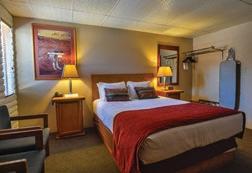




































































































































humanoid face—something like an eerie mermaid crossed with a seahorse.
New Mexico is not only Herrera’s childhood home, but also where many of his family members still live, including his three adult daughters, Misty, Joni and Heather. But Moab is home for him too — he’s established a sense of community and is proud of the home he shares with his wife and his son, Tyler.
Herrera carves at a desk outside his house, equipped with a vise and drawers full of cutting and carving tools. He’s working on outfitting a small outbuilding as an indoor woodshop. His pieces are for sale at the Trading Post in Moab on south Highway 191, and this past winter, he exhibited his work at the Moab Arts and Recreation Center.
At the exhibit opening, he read an excerpt from a book he’s writing: the working title is Ángel Mío. Herrera’s first book, El Coyote Pinto, is a lyrical memoir of his early years in New Mexico, and is available through online booksellers and at stores throughout Moab. He’s 13 chapters into his second book, which will also explore his ancestry, as well as introduce people he’s met over the years and what they’ve shared with him. He’s not sure when he’ll be done writing it.
When he’s not writing or carving (or working his full-time job at the Community Recycle Center), Herrera hosts a radio show, Entre Las Piedras, playing a variety of music on local station KCYN. He DJ’d on the radio for nine years in New Mexico, and for another 12 at Moab’s community radio station, KZMU. He’s a musician himself: he sings,
plays guitar, and writes songs. He’s often asked to play at family weddings and funerals, and he’s submitted some of his compositions to a local musician who plans to bring them to Nashville. He said he writes mostly about love and betrayal — classic country music themes.
“Love is easy, and betrayal is even easier!” he quipped.
While Herrera misses New Mexico, he also loves Moab. He remembers an uncle who would say “Han hecho un mundo,” or, “They’ve created a world,” to describe people who have built their communities
and surroundings to facilitate a content and productive life. That’s how Herrera feels about his home in Moab — he’s surrounded himself with the tools and venues for his creative outlets. Lately he’s been especially inspired to carve.
“I just want to see what my next creation will look like,” he said.
If you’re not local to Moab and are interested in Herrera’s sculptures, books or music, you can contact him at emiomine@gmail.com or 435-280-7639.






















We stumbled upon the Martian research station after exiting onto a dirt road near Hanksville, Utah; population 190. Signs are posted everywhere to not fly drones over the facility, so we didn’t.

Assuming we had finally found the new base where DARPA’s team must be
keeping the descendants of Roswell’s Martians (kept alive since their untimely crash in Roswell, New Mexico in the early 1950s), we honored their seclusion and privacy and maintained our distance. We saw no sign of the aliens who are likely being housed inside, still unaccustomed to the heavy
high-oxygen atmosphere of Earth.
The Mars Desert Research Station (MDRS) is a “space” station located near Hanksville. The Mars Society operates the laboratory in the remote BLM land expanse, which they describe as an “analog to Mars geology”. MDRS takes researchers on 2-3 week missions.
Crews need to carry out their missions in microbiological and geological laboratories. The station features stateof-the-art aquaponic growing systems as well as a 7.5-foot automated dome telescope. Sleeping quarters reside in the upper deck of the “Hab”, which is a cylindrical building originally constructed in 2001.
The habitat offers an air lock where biological and geological experiments can be conducted in similar conditions to what the first colonists on Mars might encounter,

By 2029, Elon Musk’s SpaceX will land a human on Mars. Musk hopes to accomplish the feat possibly before we destroy planet earth. While the actual planet of Mars is 140 million miles away, and will require over six months of travel time with primarily a CO2 atmosphere, this Mars station was about 14 miles off Cow Dung Road. The methane from cow dung assists in mimicking the Martian high-methane atmosphere.
The facility appeared to be well funded. In addition to the original observatory, there is a robotic observatory that is linked to the Hab via above ground tunnels. The facility includes a solar array which provides enough electricity to maintain all the needs of the inhabitants. Don’t try to speak to the inhabitants or approach the observatory; they don’t want to be bothered.
The operation is a fully volunteer enterprise with over 1,000 people participating in the Martian (alien cover-up) to date. Rumors persist that the Martians living in the Hab want to return home, but they will have to wait until after 2029.
 By Laurel Dudley
By Laurel Dudley
OGDEN, Utah — When Melissa Helmbrecht brought her 6-year-old son to his first ski lesson, she was nervous.
Her son Jude has autism, and she worried the ski instructors wouldn’t know how to work with him. She hoped it wouldn’t turn out like T-ball, where Jude initially charged after the ball no matter where it went and no matter the position he was assigned to play. But the T-ball coach, not realizing that Jude didn’t understand, yelled at him. Jude stopped chasing the ball. In the games that followed, Melissa watched Jude sit and play in the dirt.
“He shut down,” she said.
A flier from Jude’s school caught Melissa’s attention. It was from Ogden Valley Adaptive, a nearby organization
claiming to teach people with disabilities how to ski. No one in the family skied, but Jude loved playing the video game Mario & Sonic at the Winter Olympic Games. Maybe, Melissa thought, Jude would enjoy skiing.
At the first lesson, Jude was adamant about two things. He didn’t want to ski, he wanted to snowboard. And he refused to ride the beginner lift.
The instructors, patient and unphased, adapted. One instructor pushed Jude partway up the hillside and helped him snowboard down. It worked. Lesson after lesson, as Jude got better, that instructor ran next to him to keep up.
By that winter’s end, Jude did the unthinkable — he rode the chairlift.
Today, 12 years later, Jude can snowboard black diamonds (the most advanced terrain). Encouraged by Jude’s instructors, Melissa learned to ski and even taught Jude’s sister. The three of them now ski together at Powder Mountain every weekend.
“I’m so thankful that I have this with my kids,” Melissa said. “I tell people all the time about this program.”
Ogden Valley Adaptive has been giving ski lessons to people with disabilities since 2009. It’s one of six organizations in Utah that offers lessons in adaptive sports.
“We are bursting at the seams as far as people wanting to take lessons,” says Alex Davenport, executive director.
About one in four adults in the U.S. have some type of disability, according to the Centers for Disease Control and Prevention. By that metric, Alex estimates northern Utah is home to over 135,000 people with disabilities.
“We’re really only reaching a small percentage of the population who could benefit from our services,” Alex said.
What are those benefits? Study after study shows that getting outside and being physically active improves mental health and well-being. It’s why organizations like Ogden Valley Adaptive exist — to make sure that those with disabilities have the opportunity to get outside, too.
This winter, Ogden Valley Adaptive is on track to give 500 ski lessons to participants whose ages range from 3 to 97, and whose disabilities span from cognitive to physical. Each participant’s needs are different, but everyone shares one common goal: to play outdoors in Utah’s stunning natural beauty, and in the winter, to enjoy what’s touted as the greatest snow on earth.
“There’s something magical about sliding [on snow],” says Jacob Vigneault, who’s taught adaptive skiing for half his life. The 36-year-old snowboarder specializes in working with people with autism, like Jude, whom he taught for more than 10 years.
Jacob taught 16-year-old Austin Bayliss, too. Although Austin can’t communicate how he’s feeling with words, his mom, Nicole Van Buskirk, knows Austin loves to ski.
After a ski lesson, Austin smiles and laughs, she says. He holds his head up high; his shoulders are back. “He is so happy. You can just feel it. It’s like he’s radiating heat.”
When Austin’s behavior began to improve at school, a therapist joined them at Snowbasin Resort to see what ski lessons were all about.
“This is more than just, ‘Can we get you out skiing?’” Jacob said. For people with autism, “it’s about developing interpersonal skills.” It’s saying hello to the person scanning lift tickets. It’s engaging with the program’s rotating volunteers. It’s learning that to ride the chairlift you have to wait in line — something Austin doesn’t like.
“[Skiing] teaches them that there’s a process in life,” Nicole said.
For others, the chance to ski is about reclaiming independence.
When Barbara Oleynick began losing her vision in her mid-30s due to retinitis pigmentosa, she figured she’d never ski again. Nearly ten years passed before she learned about Ogden Valley Adaptive and scheduled lessons. As Barbara skis, two instructors, a volunteer, and her husband surround her in what she describes as a “bubble.”
“It’s stressful as hell,” she said. “My biggest fear is that I’m going to run into somebody because it looks like I can see normally, but I can’t. Then, once you start skiing, you get the confidence of the people around you, and you trust them. It is absolutely exhilarating.”
Barbara, now 64, said that vision loss requires her to be cautious, though she still bumps into things. But skiing makes her feel normal.
“It’s that feeling of speed and freedom and that rush of fresh air. You can’t get it any other way … It’s what lights me up and keeps me going the rest of the year.”
 By Cathy McKitrick
By Cathy McKitrick
OGDEN – As their children grew more independent, four Ogden Valley moms used their newfound free time to team together and stretch their talents.
But their combined end product surprised even themselves.
Nikki Ashton earned a college degree in piano performance. Victoria Green trained in playing the bass, Jessica Groom sang in the church choir and played several instruments, then minored in music in college, and Jami Taylor earned a college degree in music.

In 2017, their love for all things melodic led Ashton, Green, Groom and Taylor to form an all-girl band. While they could have stuck to softer sounds, her bandmates suspected that Groom possessed untapped vocal power.
And soon they were busting through stereotypes to perform hard rock and heavy metal – all while wearing 1950s-style house dresses to add to the cultural dissonance.
“When we first got together, it was like ‘what music are we going to play?’ Half of us were like, ‘girl music, something soft,’”
Green said. “We didn’t know that Jessica was a huge metal head. Jami’s husband suggested that we play hard rock and we all said yes! It sounded so fun – and I guess unpredictable.”

So by day these ladies fix boo-boos, drive carpool, attend parent-teacher conferences, cook dinner – you know, all the mom things. But at night they rock the house with Green thumping the bass, Groom belting out vocals, Ashton pounding the drums and Taylor blasting guitar chords.
With combined broods that total 19 children, this dedicated foursome is not yet ready to hit the road for a full-on tour. But they have dazzled audiences at several music festivals and hot spots throughout Utah, including Funk ‘n Dive in downtown Ogden, Snowbasin Ski Resort and the Utah Arts Festival.
“We really do take the band seriously and every effort we put into it we try to do 100 percent. But we can’t let it take from our families,” Green said. “So we limit what we do … we really try to keep a good balance.”
So for now, they focus on “things we can do,” Green said. That includes writing more songs – and recording them.
Mothers of Mayhem released their latest video this March, just in time for Women’s History Month. And “Elijah Jones” not only entertains, it also tells a stirring story of polygamy and domestic violence in the wild west.
Filmed in Kanab, Elijah Jones is a fictional outlaw in the late 1800s who brings home four women, one by one. While they basically cook, clean and slave at home, Jones enjoys strutting around town, drinking large quantities of alcohol and then returning home to inflict pain on whoever’s handy.
But Elijah Jones doesn’t get the last word in this fiery ballad.
This talented quartet also enjoys playing covers of well-known songs, putting their distinctive stamp on the Beatles’ Eleanor Rigby, Sweet Dreams by the Eurythmics, and more.
While Elijah Jones might make some people uncomfortable, Moms of Mayhem suggest that it should – it deals with
difficult issues that some women still struggle to overcome.
“I hope it awakens a spirit of strength and power – whether that be to overcome your own personal Elijah or to just finally take the steps to go out and live your best life and follow your dreams,” Groom said.
Green – who prepares for on-stage performances by calming herself with music from the Mormon Tabernacle Choir – said she never dreamed of playing heavy metal and hard rock, or for that matter, being in a band and “putting myself out there. “



But the experience has proved to be something all the Moms of Mayhem savor.
“As a mother, your world gets kind of small in a lot of ways and you only interact with the people that your life overlaps with – other moms,” Green said. “The band gives us these experiences where we interact with all sorts of people. It is so cool to meet them and get to know them.”
You can view their videos here: https:// mothersofmayhem.net/video/
 By Ted Scheffler
By Ted Scheffler
Ihad only been writing about food, drink, and restaurants for a year or so when Christopher’s Seafood & Prime Steakhouse opened in downtown Salt Lake City on Pierpont Avenue. The new steakhouse took over the space that was formerly home to Gastronomy Inc.’s Baci Trattoria Italian restaurant and club. That was in 1995, and well before downtown dining destinations with heavy carnivore appeal such as Ruth’s Chris Steak House, Fleming’s Prime Steakhouse & Wine Bar, Spencer’s for Steaks & Chops, The Capital Grille, and others entered the meaty fray. It was
also one of the first restaurants to serve USDA Prime cuts of meat and Wagyu beef, as well as meats from prestigious purveyors like Snake River Farms, Niman Ranch, and 44 Farms.
In 2018, Christopher’s moved into the historic Peery Hotel, rechristened as Christopher’s Prime Tavern and Grill, and was renamed even more recently simply as Christopher’s Prime.
Also in 2018, Sonoma Wine Bar + Grill opened in The Peery, featuring the flavors and ambiance of California’s wine country in a relaxed and congenial atmosphere. I mention Christo-
PHOTOS BY JOHN TAYLOR

















pher’s and its long history as a downtown dining destination here because it is owned and operated by the BonPatt Restaurant Group and the longtime business partners that the group is named for — Anthony Bonomini and Christopher Patterson.

BonPatt is also behind Sonoma Wine Bar + Grill, as well as Fat Jack’s Burger Emporium and Toro Rosa bar. And now, there’s a new feather in the BonPatt culinary cap: Homecoming Southern Kitchen & Bar, which recently landed in another historic downtown location — this one the longtime home to The Olive Garden on 200 South near the Salt Palace. The driving forces behind Homecoming Southern Kitchen & Bar are Tara and Tony Bonomini, and you’re going to love what they did with the place.
Gone is any remnant of the old Olive Garden, and I was told that a lot of sweat equity went into turning the stale chain restaurant into something
very inviting and unique. The owner and their crew gutted the former Italian restaurant and the result — after much hard work — is a spacious, airy eatery with a lively bar near the entrance, lots of window seats, and a modern but very warm and inviting ambiance. Even the mostly 80s music is right up my alley. There’s also a sidewalk patio which is going to be a superb spot to gather when the weather warms up a bit.
As you’ve probably surmised, Homecoming Southern Kitchen & Bar is all about comfort food with a Southern slant. It’s food and drink served from the heart. The owners have an ongoing love affair with the South, saying that they “traveled to the South 100 times before, experiencing their true Southern hospitality and ridiculously scrumptious food representing a melting pot of influence. We wanted to bring the styles and flavors of the South to Salt Lake City.” It’s a dream they say they’ve had for more than 20 years — a







dream that has finally come to fruition.
They’ve certainly nailed the Southern-style hospitality, with super-friendly servers like Jack, and General Manager Elias Jackson, who treat every guest like they were family. Chef/ Partner Andrew Carraway oversees the Homecoming Kitchen, and I was impressed that although he’s dishing up comfort food, the ingredients are top-notch. For example, the chicken in the spectacular Nashville-style fried chicken is Mary’s Organic Chicken. You’ll also find Kobe beef on the menu, cuts of beef from Niman Ranch, and the folks at Homecoming say, “We search everywhere for the freshest and highest quality ingredients, but we always start in our backyard first. Over 70% of our menu is locally grown, raised or produced.”
Of course, menu items like Andrew’s Spicy Ass Rock Shrimp aren’t local — thank goodness — but those crispy crustaceans are totally addictive, as are the country-fried oysters with

jalapeños. Homemade chicken and seafood gumbo and from-scratch chicken noodle soup give you an idea of the warm culinary vibe at Homecoming. And big, meaty slabs of Prime Rib are a specialty of the house, served with horseradish cream and roasted garlic au jus. Come hungry because the portions are ginormous, from the buttermilk fried chicken and BBQ baby back ribs (half-rack or full), to the hearty shrimp & grits, and pork belly with biscuits. But don’t leave before indulging in Chef Carraway’s sour cream cake; it’s a heavenly dessert passed down from his grandma. Hey, how could cake grilled in butter be anything but divine?
Homecoming Southern Kitchen & Bar couldn’t be more aptly named, because the hospitality, cuisine and libations there all make you feel like you have indeed come home. The back of the shirts the Homecoming servers wear pretty much say it all: “Bless your heart.”
This is a place with plenty of heart.







When she was 15-years old, Latina Eli Madrigal emigrated to the US. Her enjoyment of the retail grocery business inspired her to establish her own

grocery store chain, Rancho Markets. Madrigal recently opened her ninth Rancho Market in Clearfield, Utah.
Madrigal, an example to the Latino
community, went from working at a grocery store to owning nine grocery stores along the Wasatch Front.
The journey to success was always challenging for Madrigal. She worked long hours every day and rarely had free time. As a single mother, providing for her son is what kept her going. She married and divorced at the young age of 23.
Like many single mothers, Madrigal overworked herself to stay afloat. “I made the determination I had to work harder with humility and respect,” she said. Madrigal had no studies or degree, and knew she had a tremendous obligation to put food on the table.
Madrigal, who worked at a grocery store for 11 years in Las Vegas, wanted

to be a businesswoman from an early age. She set her mind to it and sought help from her friends, who loaned the money to launch her business.
Despite having lived along the US/ Mexican border and in Nevada, she chose Salt Lake City to build her home and establish her business. In 2006, she opened the first Rancho Market. Within a year, she opened the second one. Finally, she started to see the fruits of her labor.
Madrigal states that working in a man’s industry took work. However, she positioned herself in that realm. “I created a name and respect in the industry.” Businessmen respected Madrigal for her dedication, passion, and hard work.
From her teenage years, she knew she had to sacrifice to make things happen, making huge sacrifices whenever she could not pay the mortgage, bills, insurance, and utilities. Those sacrifices came in different shapes and forms. But, mostly, it meant backbreaking work.
Eli Madrigal embodies perseverance, thinking big, responsibility, and patience. She knows firsthand that nothing comes easy and that nothing is handed, above all, to immigrants and single mothers. She is an example for women in general, but especially Latina immigrants.
Madrigal says people only see the tip of the iceberg, which symbolizes success. They do not know what is required to get to that point; risks, failures, struggles, and actions. For example, asking for a loan to establish her company was a high risk. If the business had failed, she would have gone into debt. Her struggles were too many: handling
motherhood, family, herself, and keeping a newly established business afloat and profitable. Madrigal had a vision and put it into action. Without action, nothing can be achieved.
Madrigal advises those who want to become businesswomen to “keep learning and do not be afraid.” Sixty percent of her coworkers are women, and 75% are women managers. She empowers them to be successful, learn as she did, and keep doing it.
“When we stop learning, we don’t feel the passion. We lose our purpose,” she said. “Having a business is a lot of responsibility, but if we don’t enjoy it, we can’t be happy.”
“I tell Latinos and Latinas we have to work hard-smart-responsible. But most importantly, with discipline and respect,” she explained.
Madrigal says that working in the
grocery industry brings genuine happiness to her.
“I did build Rancho Market to be the main place for everyone who enjoys fresher and quality food for a budget. Like I did being a single, responsible mom,” she explained.

Madrigal understands that fresh food is good for the body but is too pricey in some places. She also knows that single moms have a limited budget. However, they should not sacrifice eating healthy due to a lack of resources.
Madrigal’s story is not a Cinderella tale where a fairy godmother granted her whatever her heart desired. Her story symbolizes the reality of many immigrant women, single mothers, and women without education who had to rely on themselves to make their dreams and wishes come true.




While riding her bike in Big Cottonwood Canyon on a sun-dappled fall morning in September 2004, 25-yearold cyclist Josie Johnson was struck from behind and killed by an SUV driven by 67-year-old Elizabeth Deseelhorst, wife of then Solitude Ski Resort owner, Gary Deseelhorst.
At the time of her death, Johnson was a second-year graduate student pursuing her doctorate in molecular biology at the University of Utah.
Despite claims that she may have suffered a stroke behind the wheel, Deseelhorst was eventually charged with negligent homicide in Johnson’s death. Because Deseelhorst’s Jeep Cherokee was registered to Solitude, Johnson’s family was able to recover a $2.5 million settlement in a lawsuit against the resort, in addition to civil damages from Deseelhorst herself.
But not all families whose loved ones fall victim to cycling and pedestrian-related deaths fare as well. In fact, most receive little to no compensation for their loss; instead, they endure years of litigation, frustration, and endless heartbreak.
Several positive changes resulted from this tragic incident. One was the passage of a ‘3-foot law’, requiring Utah motorists to give bicyclists a 3-foot safety buffer; planning new road construction for the needs of bicyclists; and a plethora of “Share the Road” signs reminding drivers to be courteous. Also, an annual ride was dedicated to Johnson — The Josie Johnson Memorial Bike Ride — aimed at promoting a growing awareness of cyclists and their right to use public roadways safely.
Within weeks of Johnson’s death, another cyclist, Steve Williams, was also hit from behind by a car and killed, this time in Iron County. Since that time, Utah has seen a spike in bicycle crashes resulting in death.
Between 2003 and 2012, 7,283 crashes involved a bicyclist, with approximately 660 injury crashes and five fatal crashes involving bicyclists each year in Utah.
These numbers have only increased in the past 10 years due to Utah’s growing population and the burgeoning popularity of road cycling as a recreational pursuit. In 2022, 15 cyclists and 53 pedestrians were killed on Utah roadways. Both were up from 2021. Nationally, nearly 1,000 bicyclists die and more than 130,000 are injured in crashes on roads every year.
Because most bicycle-motor vehicle crashes occur in more congested metropolitan areas, Salt Lake City, in an attempt to mitigate the problem and increase cyclist safety, has laws in place that accommodate bicyclists and pedestrians at all city-owned transportation facilities in the public right of way.
Bicycles have just as much right to use public roadways as motor vehicles do, but cyclists have responsibilities, too. It all boils down to right of way and playing by the rules. Regardless, if you’re on a bicycle, you don’t want to assert your right of way against a two-ton vehicle, especially if the driver doesn’t know or care about the rules. If you’re a cyclist, never assume that a driver sees you, even if you make eye contact with them.
Let’s face it, most Utah drivers have probably never heard of the ‘3-foot law’ or understand its intent, which states that [Motorists] “May not pass within 3-feet of a moving bicycle, unless they can do so at a reasonable and safe distance (State Law 41-6a-706.5).”
But the onus is also on cyclists. Drivers don’t expect a bicycle to blow through a stop sign or red light (cars do it all the time, but they’re more visible), shoot off of a sidewalk into a crosswalk, or have a bike suddenly dart in front of
them from the shoulder to the left turn lane — even if the cyclist does so legally and signals his intent.
Jon Larsen is the Transportation Director for Salt Lake City. “Our goal,” Larsen says, “is for people of all ages and abilities to be able to use a bicycle for daily needs or to ride for fun or exercise, and to do so in a safe and comfortable environment. The biggest safety risk by far is being hit by a car. To mitigate this risk, we are focusing on slowing cars and creating separation between bikes and cars through street design. Physical barrier separation is the ideal, particularly on streets with high traffic volumes. We have also been focusing on adding protective curbing at intersections, since this is where many of the crashes occur.”
Salt Lake City publishes a pocket edition of bicycle laws which states in part that, “A bicycle is considered a vehicle and bicyclists have the same rights and are subject to the same traffic laws as the operators of other vehicles. As a vehicle, bicycles are required to be ridden in the same direction as other traffic, obey traffic signals, stop signs, and all other traffic control devices (12.80.040.A, 12.80.095.B).”
“Safety is our top priority when designing our streets, particularly with Mayor Mendenhall’s recent declaration of her intention for Salt Lake City to become a Vision Zero city,” Larsen explains. “This declaration gives a mandate to all departments that work within the City right of way to look at all of our decisions through a safety lens.”
A Vision Zero City, according to the Vision Zero Network, is “One that meets the following minimum criteria: A clear goal of eliminating traffic fatalities and severe injuries has been set. The Mayor has publicly, officially committed to Vision Zero.”
Mark Kennedy mostly agrees with
the city’s efforts so far. As a cyclist and the owner of Saturday Cycles in SLC, Mark says, “It has been nice to see more bicycle infrastructure go in around the city. Even if I don’t always like how it’s implemented, more infrastructure generally means more cyclists, and cyclists being normalized is a good thing.”
Although he believes the city has done a great job by adding new infrastructure, some of it seems a bit misguided, like the new 300 W bike path, Kennedy says. “People don’t understand it. Much of this [infrastructure] ends up being on UDOT roads, and although it is clear that UDOT, while talking a good game, is all about roads for cars.”
When asked what the city could do better, Kennedy replied, “Where to start? All of it! More bike lanes. More bike paths. Road diets. Pedestrian friendly sidewalks. Sidewalk cafes. Road diets. Charge data-based rates for parking. Improve and incentivize public transit. Road diets. A little carrot and a little stick to slowly encourage folks to drive less. This will result in safety improvements for cyclists and everyone else. That, and keep the bike lanes swept and plowed. And ask the gravel companies to move to the other side of the lake,” he says, half joking.
Cycling is a vulnerable sport and Salt Lake is not always a cycle-friendly city. Some drivers can be downright hostile to cyclists, whom they may perceive as a nuisance on the roadway, and too many cyclists flaunt the very laws that are intended to keep them safe. They need to know and follow all applicable laws and be ambassadors for the sport.
Cycling is an exhilarating and competitive sport as well as a clean and efficient mode of transportation.
By all means, ride your bike, but don’t become a statistic. Follow the rules, use common sense, be safe and have fun!









 By Dan Potts
By Dan Potts
Have you seen Salt Lake City’s pronghorn antelope?
Most Utahns do not know that our capital city may be the only one in America that has its own herd of native pronghorn antelope inside its city limits. I know of no other US city where these magnificent big game animals can be routinely seen just off a major freeway only minutes outside of downtown.
As the only native goat on our continent, the American antelope, Antilocapra americana, is best recognized worldwide for its great sustained running speed. With the ability to run at 30 mph for 15 miles, they can spurt to 70 mph to escape danger. I once had a herd, including youngsters, pass my truck in the west desert, then cross the asphalt road in front of me while I was driving 55 mph.
They also possess ‘binocular vision’, enabling them to spot us at greater distances, and are well known for their curiosity. One younger buck in the herd actually approached me, only to run off later when my dog tried fruitlessly to chase it.
Around the turn of the century, populations of both America’s bison and pronghorn were very low, but Utah State Parks and Recreation agreed to protect both threatened species on Antelope Island State Park.
Special limited entry hunts are conducted by the Utah Division of Wildlife Resources to help manage those populations, along with some trophy mule deer that are also found there.

As a meat-hunter, I harvested my first antelope after waiting five years to finally draw a permit for the Flaming Gorge Reservoir area. The meat was excellent.
Buck pronghorns drop their black
curved ‘horns’ during the winter, similar to mule deer dropping their antlers. However, the two species are not related. Over many decades, both antelope and mule deer have migrated from Antelope Island to the mainland in Weber and Davis Counties, and south to the northern end of Salt Lake County.

Although I have seen large trophy-size pronghorns within city limits, a few of the island’s famous trophy mule deer have also migrated across, but have often been illegally harvested for their antlers (see photo).
Because Great Salt Lake water levels were higher in the past, these animals originally swam or waded to the mainland. With the current, extremely low lake levels, however, they can simply cross on open ground.
Finding good feeding opportunities
with little hunting pressure, the herd has grown to about 80 animals in what has become the Inland Port area. I routinely see groups of them just west of the International Center and Amazon and just north of I-80.
Like many other wildlife species over the decades, antelope have continued to adapt to human activities, referred to as “habituation”, and have grown more accustomed to the development of warehouses, a new state prison, and continued use by the numerous duck clubs to the north. The herds are easy to spot due to their contrasting reddish-brown and white bodies.
I recommend looking north while traveling west on I-80 just outside of SLC’s downtown for this great, watchable-wildlife opportunity.
How cool is that?

April 13-15
Moab Dirt Bike Rally. Learn about the trails in and around Moab with everything from beginners to experts. This event features guided tours, booths, and a photo contest. Visit greenriverdirtbikerally.com for more information.
April 20-23
Wasatch Mountain Film Festival. This festival screens Adventures fi lms and offers workshops, lectures, food & entertainment. To see a schedule of fi lms and venues and purchase tickets visit www.wasatchfi lmfestival.org.



April 22
8th Annual Salt Lake City Classic Car Auction. This event will be held at the Mountain America Expo Center, 9575 State Street, Sandy. Starting at 8am, fans and collectors can view the classic cars to be auctioned. Everything from Muscle Cars to Vintage Rides and Street Rods to Classic Trucks will be on hand.

April 22
Dutch Festival at The Gateway. This 2nd annual
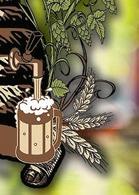


event celebrates Koningsdag, or King’s Day. Celebrated around the world with the biggest celebration in Amsterdam, visitors wear orange to celebrate King Willem-Alexander’s birthday. Salt Lake’s event is a free, family-friendly celebration showcasing the traditions of Holland. Dutch cuisine, beer, games, and craft booths will be on hand. It will be held from 11am to 6pm, and everyone is invited to wear orange to signal the end of a long, gray winter.
April 22

Earth Day at Ogden Nature Center, 966 West 12th Street, Ogden. Enjoy earth-friendly exhibitors, demonstrations, entertainment, food, nature crafts, and more. Visitors can also explore the trails of the Nature Center. Admission is $5 for non-members, $4 for members and $3 for children under 12.












May 5



Draper City’s Cinco De Mayo Festival. Held from 6 - 8:30pm at Draper Park, 12500 S 1300 E, this event will feature music, dance, food, and activities. This is a free, family-friendly event.
































Your neighborhood sports pub: spectacular food, drinks, sports, music, and a fabulous rooftop patio.
Perfect Spot with Delicious Food, Unique Beers, Craft Cocktails, Music, and Dance. DOWNTOWN–SLC
Farm-inspired California cuisine.

Elevated Southern comfort food with a massive wine list.
Great Food! Great People! Vegan Diner, Breakfast All Day, Full Bar, All Made from Scratch.




KiiTOS BREWING
SALTLAKE CITY,UTAH
Tavern - Can Shop - Pinball 608 West 700 South




SALT LAKE CITY
Italian cuisine and wine in an upscale-casual environment.














Exceptional cookie bakery with innovative flavor combinations.
SALT LAKE CITY
The finest beef on the most luscious brioche bun.
DOWNTOWN–SLC DOWNTOWN–SLC DOWNTOWN–SLC DOWNTOWN–SLC SALT LAKE CITY DOWNTOWN–SLC SALT LAKE CITYJoin us to share laughs and enjoy award-winning beers & pizza!

Neighborhood bistro featuring made-fromscratch meals.

Dive in deep with Utah’s finest craft beer.
Handcrafted, Small Batch Spirits.


Sugar House’s most famous burger joint. SUGAR HOUSE





















Rustic-chic cafe. Serving traditional Jewish deli.
Funky, laid-back co eeshop o ering sweet & savory crepes, plus outdoor seating.


Historic diner in a trolley car serving American fare in a scenic locale with canyon views.
EMIGRATION CANYON
Casual eatery featuring specialty salads, pizzas, and fresh pasta.






















Bringing the spirits of the past alive in your glass.
 SUGAR HOUSE
SOUTH SALT LAKE
SOUTH SALT LAKE
SOUTH SALT LAKE
AUTHENTIC JEWISH CUISINE
MILLCREEK
EDEN
MILLCREEK
SUGAR HOUSE
SUGAR HOUSE
SOUTH SALT LAKE
SOUTH SALT LAKE
SOUTH SALT LAKE
AUTHENTIC JEWISH CUISINE
MILLCREEK
EDEN
MILLCREEK
SUGAR HOUSE




